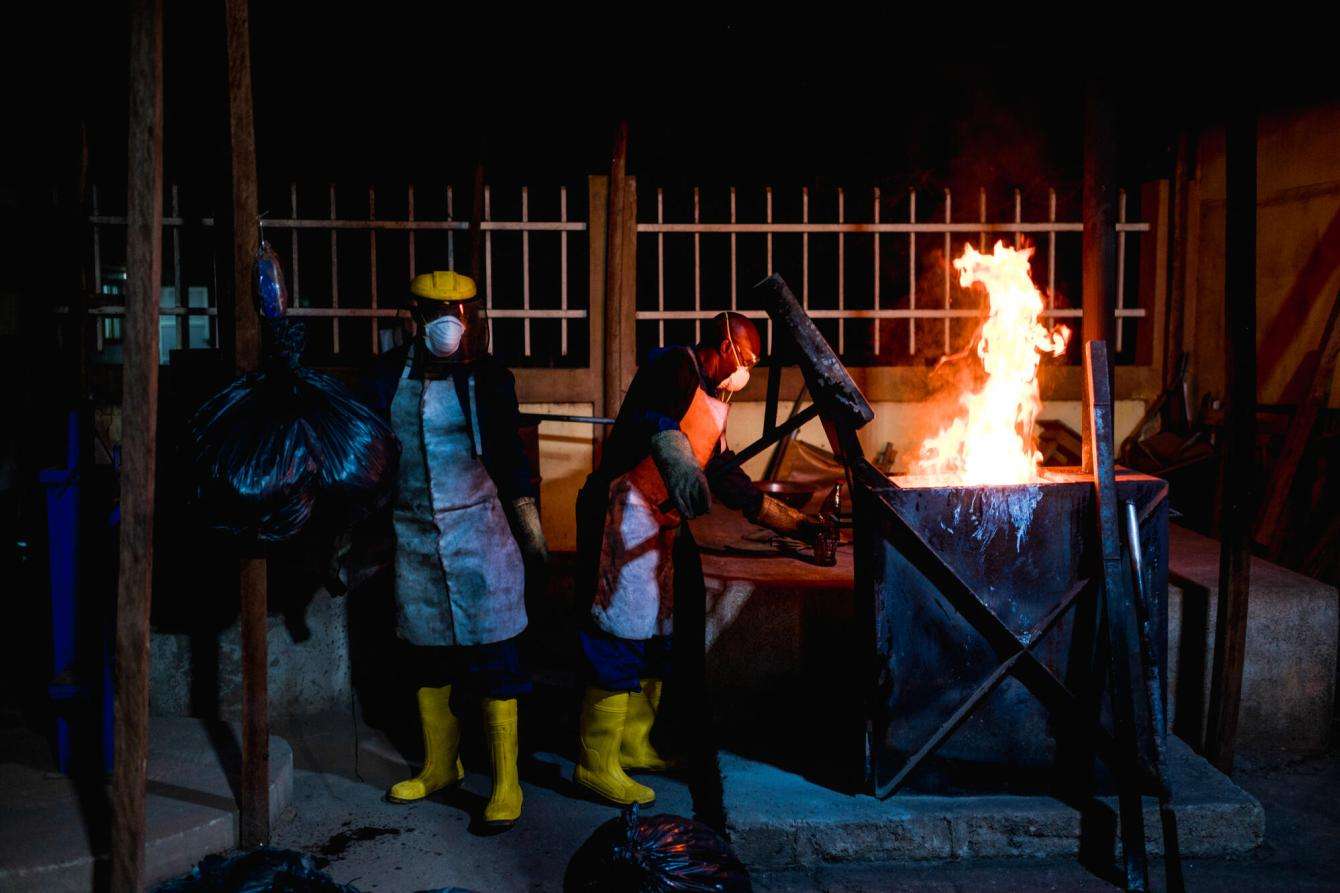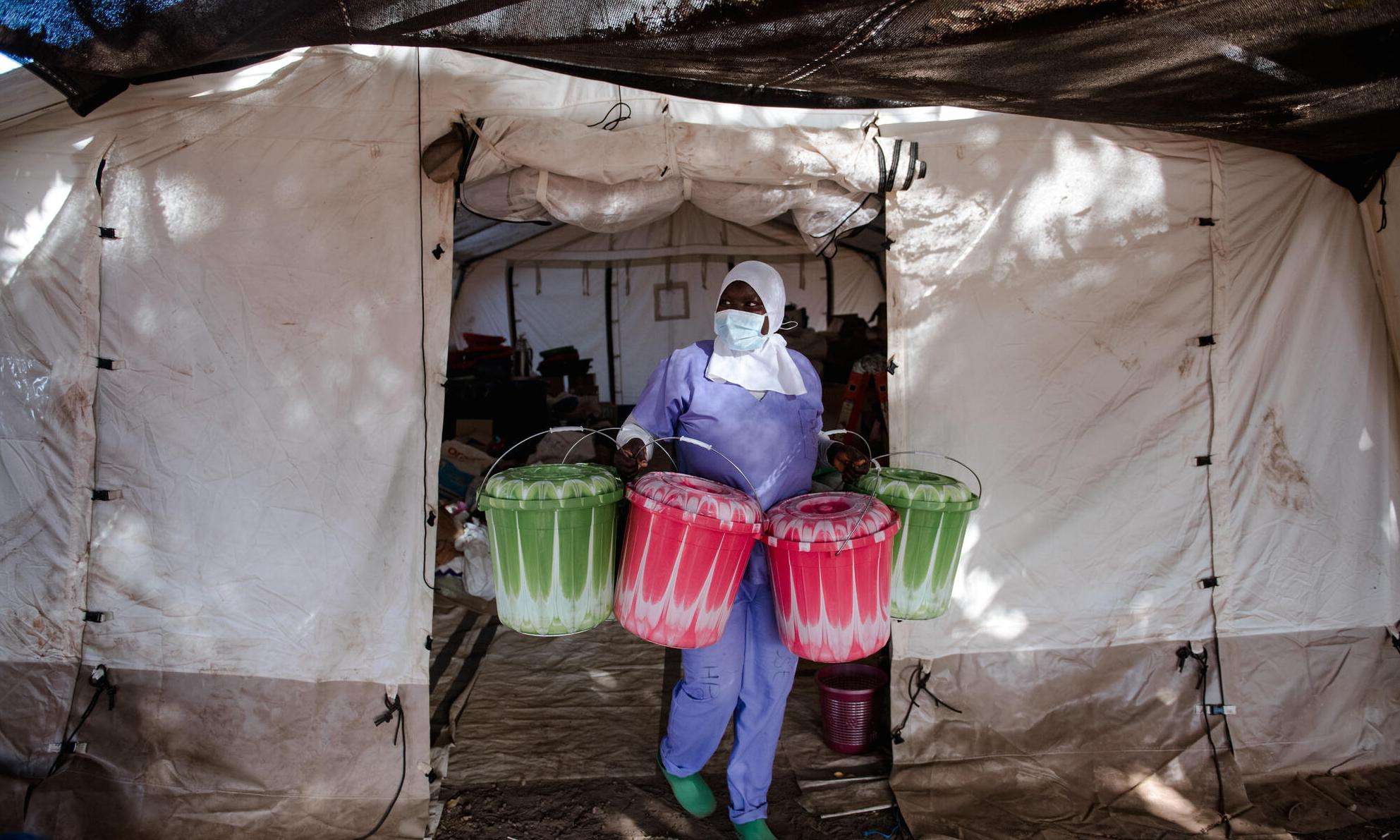Since August 2023, Doctors Without Borders/Médecins Sans Frontières (MSF) has mounted a major response to the diphtheria outbreak in Guinea's northeastern prefecture of Siguiri, where the first case was diagnosed in July.
Key resources are in short supply. Before the current outbreak, diphtheria had largely disappeared worldwide, and Guinea hadn’t seen a case of the disease in more than 30 years. As a result, most local health workers had never come across the disease until recently. The antitoxin to treat it is not widely available, and there is a shortage of vaccines.
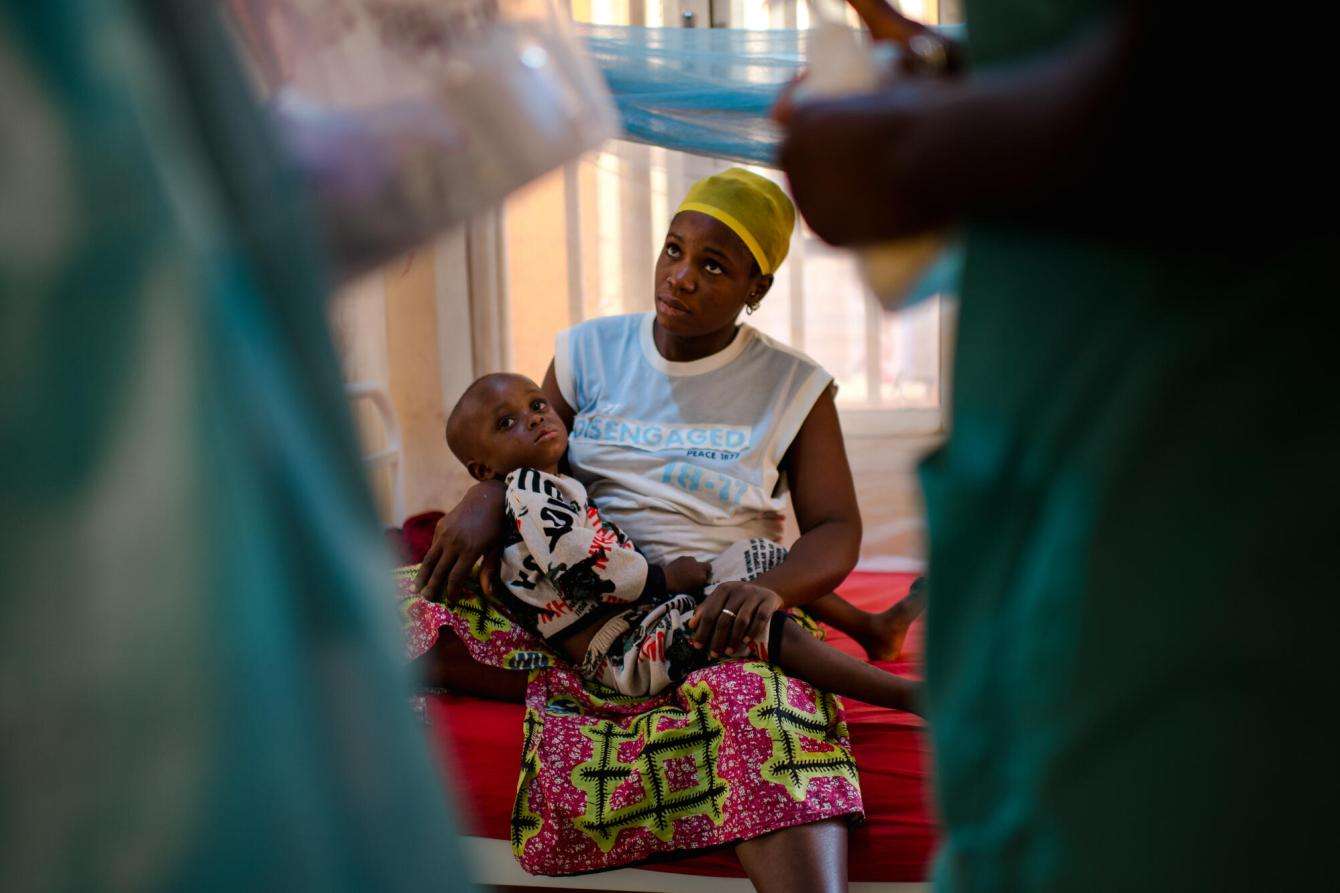
What is diphtheria?
“Diphtheria is a bacterial infection that attacks the respiratory tract,” says MSF medical coordinator Dr. Adélard Shyaka. “It is transmitted by airborne droplets and can be fatal, especially for small children. It can also release a toxin that can affect the body's organs, including the heart and kidneys. Among other things, the toxin kills the cells in the heart, nerves, and airways. A pseudomembrane can also form due to the toxin.”
The pseudomembrane is a thick, gray coating, which gets its name because it is not naturally produced by the body. If an antitoxin is not administered quickly, the fast-growing pseudomembrane can soon block an infected person’s airways, leaving them struggling to breathe. It can be life-threatening.
“It often starts on the second day after exposure with a moderate fever, followed by inflammation of the pharynx or larynx, and difficulty eating and breathing,” says Dr. Shyaka. “The pseudomembrane usually appears on the third or fourth day.”
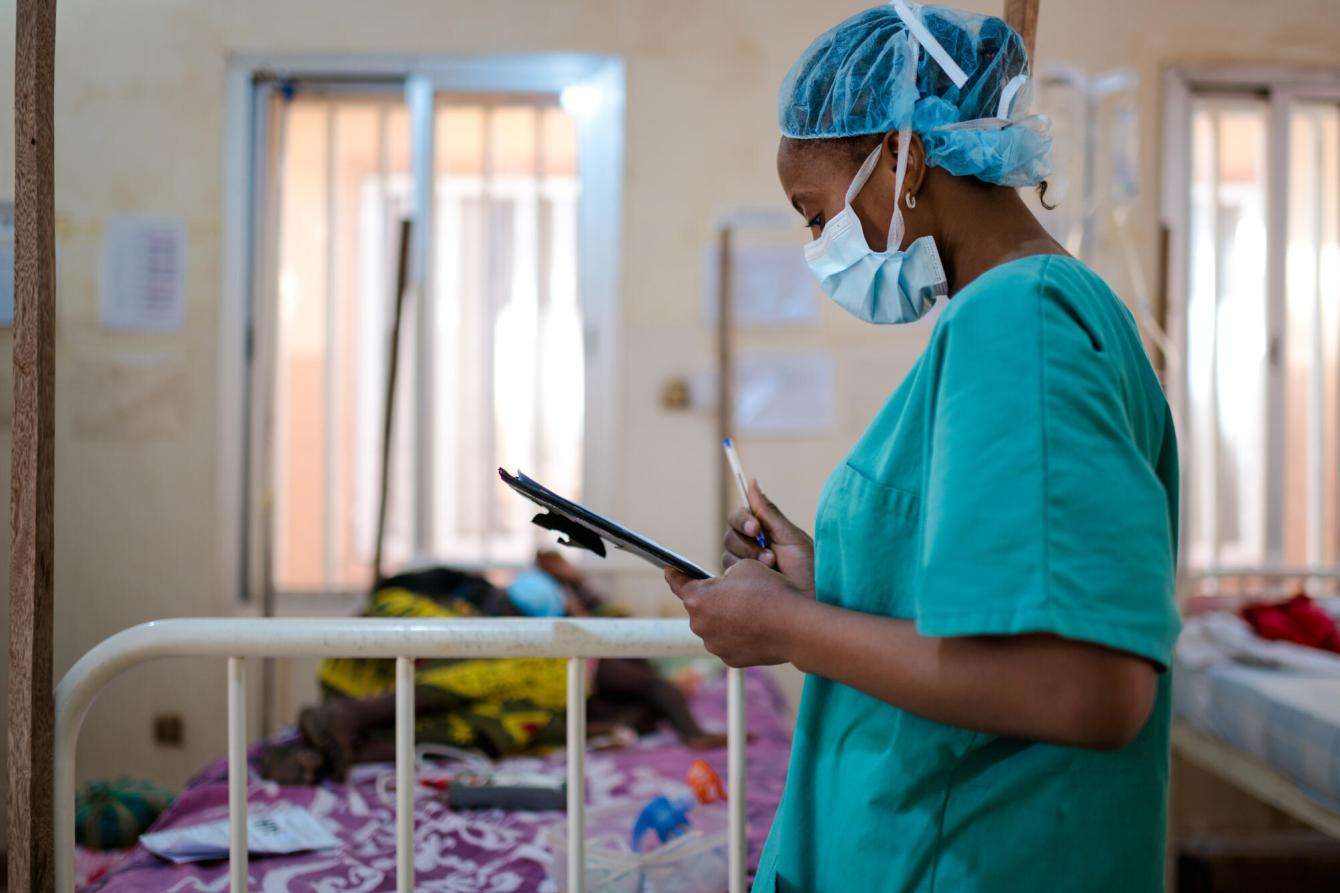
Challenges of addressing a forgotten disease
Upon their arrival at the Center for the Treatment of Epidemics in Siguiri, which is supported by MSF, patients receive medical consultations and treatment, such as with a diphtheria antitoxin. However, the means and resources to tackle this disease are limited.
“We lack health professionals who know how to recognize and treat this disease,” says MSF deputy medical coordinator Dr. Charles Tolno. “The treatment is complex and requires a lot of resources, especially in terms of the antitoxin’s availability. Given its scarcity, we have no choice but to be selective in giving it to patients with the most severe symptoms.”
With only 50 beds at the treatment center, patients with mild symptoms are sent home with antibiotics to treat the disease and reduce the risk of spreading it to others. They also receive strict instructions on how to reduce the risk of transmission. After three and seven days, patients return to the center for a check-up.
Patients with more severe symptoms are admitted to the center for treatment, where they stay for up to five days. If they need to receive the antitoxin, they must first undergo tests including blood oxygen, glucose, and temperature. For instance, the antitoxin cannot be administered if the patient has a fever that needs to be lowered.
This strategy has been successful in decreasing the number of deaths from diphtheria. “Thanks to MSF's intervention, the mortality rate has dropped drastically,” says Dr. Tolno. “When we arrived, the mortality rate was around 38 percent. Now it’s under 5 percent.”
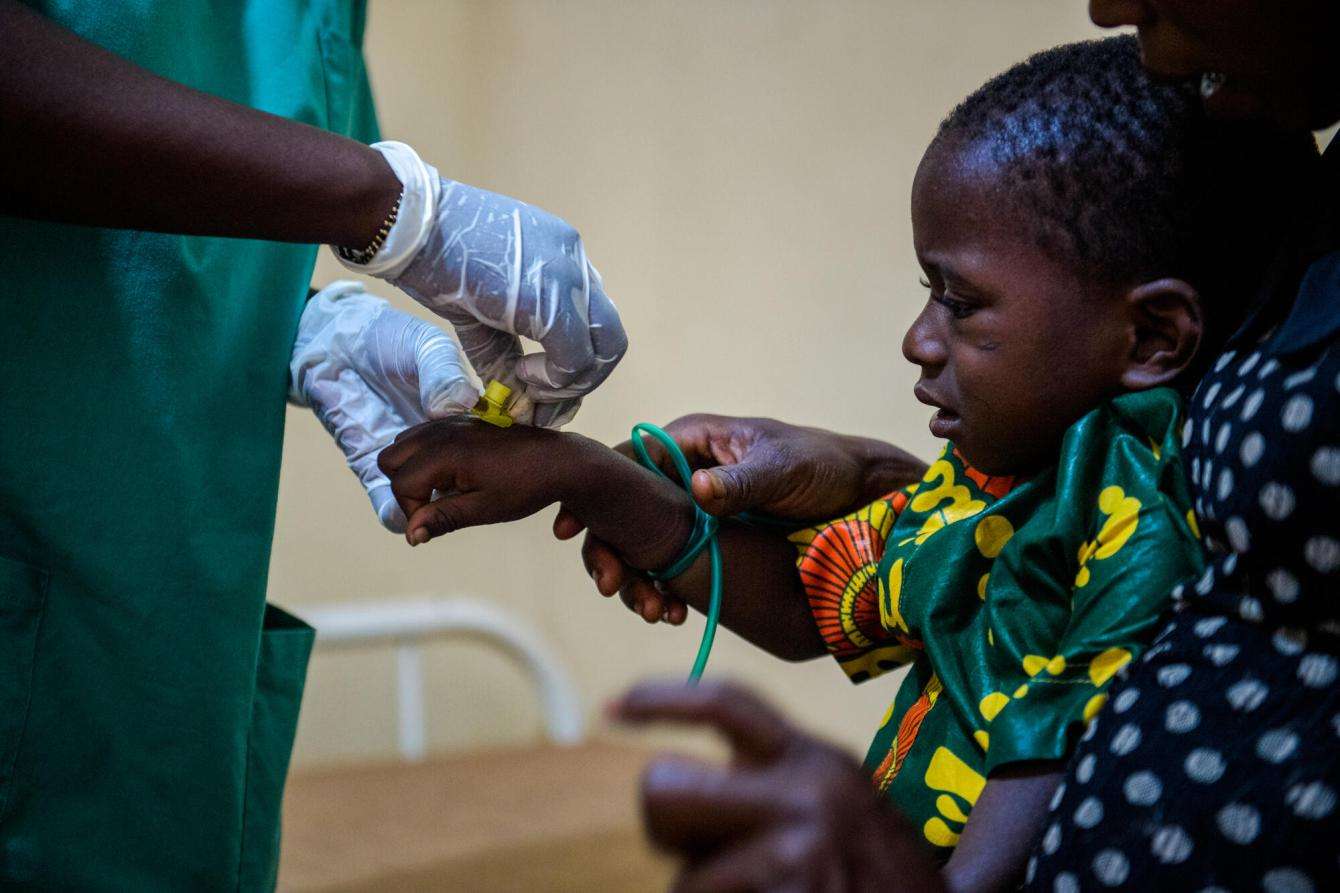
Prevention through awareness and vaccination
In the waiting room at the treatment center in Siguiri, MSF health promoters explain to patients and caregivers in Malinké, the local language, how to recognize the symptoms of diphtheria and how the disease spreads. Because of the general lack of awareness about the disease and its symptoms, many had no idea what was wrong with them until they were diagnosed at the treatment center, which most heard about on the radio, at school, or by word of mouth.
“I did not know I was sick with diphtheria until I came here,” says 40-year-old Fanta Fofana. “When I arrived three days ago on my motorcycle, I had already lost my voice. Since my treatment, I feel better. I’ve been eating well and sleeping well, I take my medication twice a day, and I’ve been able to regain my health. I hope to be discharged soon.”
Patients and people living under the same roof can also get vaccinated at the center to protect them against a range of diseases: diphtheria and tetanus for adults; and diphtheria, tetanus, polio, hepatitis B, and Hib (Haemophilus influenzae type B) for children.
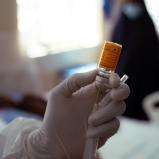
Nigeria: Routine vaccinations are key to curbing diphtheria outbreak
Read moreDiphtheria vaccination protects against severe forms of the disease and prevents people from transmitting it to others. At least two doses of the vaccine are needed to achieve a significant level of protection. While patients and people living under the same roof can get vaccinated for diphtheria at the treatment center, long production times and backorders mean that there is currently a shortage of diphtheria vaccines worldwide. Given the situation in West Africa, MSF is calling for accelerated vaccine production to bring the disease under control.
“Ideally we should have vaccinated the entire Siguiri area—all ages, but especially children—as soon as the first cases appeared,” says Dr. Tolno. “However, because of the shortage of vaccines available, we have had to focus on vaccinating patients and their close contacts. What we need now is the means to obtain and carry out a full-scale vaccination campaign in Siguiri to curb the disease.”
MSF launched its diphtheria response in Guinea in mid-August 2023. As of January 4, 2024, the treatment center’s team—made up of 64 MSF staff and 184 Ministry of Health staff—have treated 2,122 people for diphtheria, most of them young children, but also teenagers and adults.
